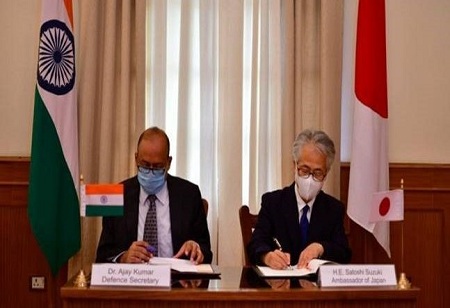To boost the mobility of skilled Indian workers, India and Japan have signed an agreement. The pact entails mobility in 14 fields including nursing, industrial machinery, shipbuilding, aviation, agriculture and the food services industry. The two countries have stepped up trade and economic cooperation across areas, ranging from the steel industry and investments to creating alternative and more resilient supply chains, amid the Covid-19 pandemic.
Foreign secretary Harsh Shringla and Japan’s ambassador Satoshi Suzuki signed the memorandum of cooperation (MoC) on a framework for partnership for specified skilled workers (SSWs), whereby Indian workers in 14 categories who meet skill requirements and pass Japanese language tests will be eligible for employment on a contractual basis.
The two sides will set up a joint working group of officials to work out operational details and smooth implementation of the programme.
“Japan would grant these workers the status of ‘specified skilled worker’. It is also expected that Indian skilled workers who go to Japan under this MoC will acquire new skills while working in Japan,” the external affairs ministry said. More than 38,000 Indians currently live in Japan. In recent years, the composition of the Indian community has changed with the arrival of more professionals, including in IT, engineering, management, finance, and scientific research.
Speaking at the signing ceremony, Shringla said Prime Minister Narendra Modi has attached “high priority” to the quick operationalization of the agreement. Japanese Prime Minister Yoshihide Suga, during his tenure as the chief cabinet secretary, was one of the main movers of the SSW programme to address the needs of Japan’s skilled labour market, he added.
Suzuki said the agreement will open the door for talented and skilled Indians to get jobs in Japan. “I'm confident it takes our friendship further with more Indian people coming to Japan,” he said on Twitter. The 14 fields covered by the agreement include nursing care, material processing, industrial machinery manufacturing, electric and electronic information, construction, shipbuilding and ship-related industries, aviation, agriculture, fisheries, food and beverage manufacturing, food services industry, lodging, automobile maintenance and building cleaning.
